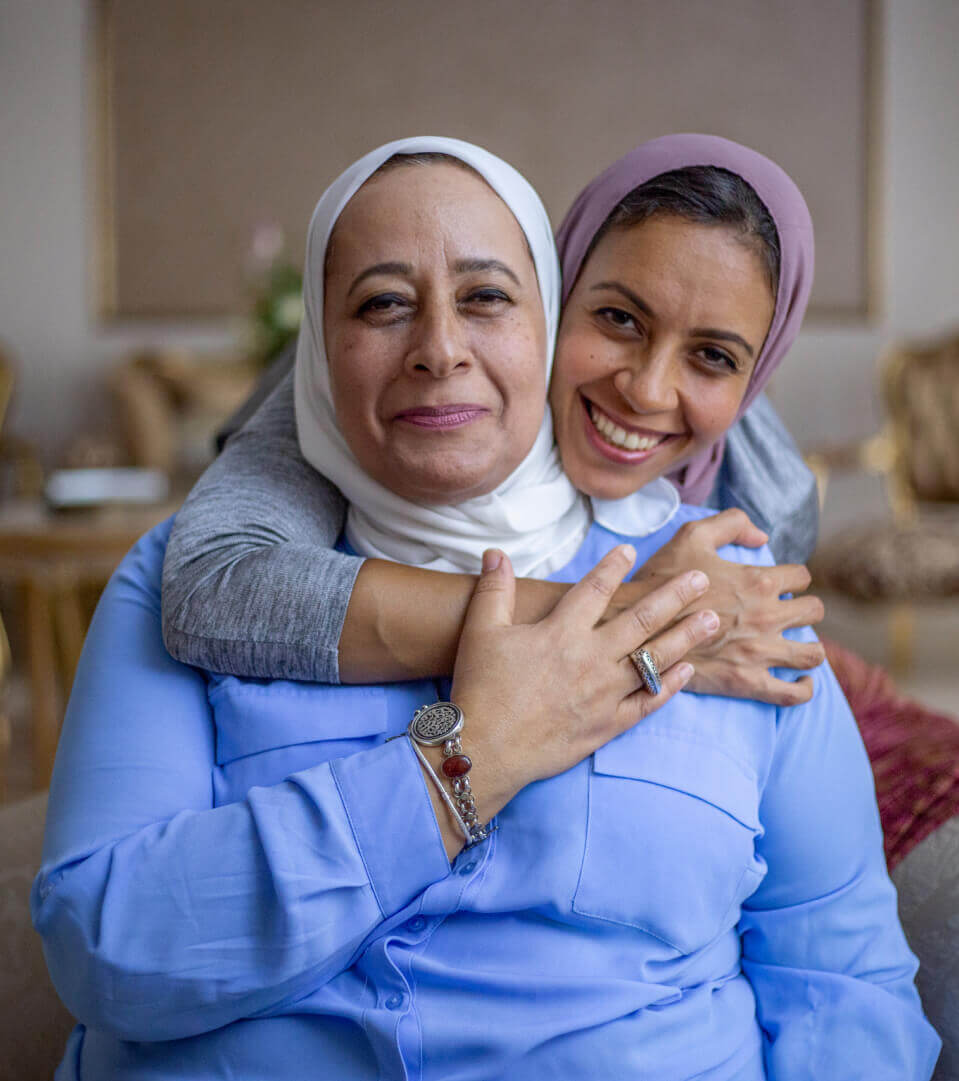Eastern Mediterranean societies are adversely impacted by the global brain health crisis
Resource type: News
The Atlantic Fellows | [ View Original Source (opens in new window) ]
Dementia and Alzheimer’s disease are a global health crisis. According to the World Health Organization, by 2050 the number of people with dementia will more than triple—reaching 152 million.
The Spark
The risk of dementia is tightly linked to aging. The expansion of aging populations is occurring most rapidly in low-and middle-income countries; the personal, societal, and economic burden of dementia will be largely experienced in these regions. This poses a unique challenge in East Mediterranean cultures where families traditionally revere their elders. By raising awareness and de-stigmatizing these devastating conditions, we can help promote more equitable societies in the region and improve the quality of life for all.
Hany, Elaine and Stelios came up with the idea at an event hosted by the Atlantic Institute in Oxford in February 2018. Together, they co-founded the East Mediterranean Brain Health Initiative (EMBHI) and built networks across the three countries to support individuals and families dealing with dementia.
“We simply recognized that harnessing the expertise and skill of one country to work collaboratively with another country could provide real solutions cost effectively and rapidly.”– Hany Ibrahim, Atlantic Fellow for Equity in Brain Health
Call to Action
The East Mediterranean Brain Health Initiative (EMBHI) promotes equitable access to essential resources, including education, early detection, preventative healthcare, and long-term care services.
“We want to support collaboration among the expertise and the networks that exist in the Mediterranean region so that one country can work with another and share their expertise and resources.”– Elaine Howard, Atlantic Fellow for Equity in Brain Health
The Initiatives
The Fellows collaborate across borders and disciplines, leveraging existing networks and expertise in the East Mediterranean region to promote fairer, more equitable societies for people living with dementia. These interdisciplinary initiatives include:
more equitable societies for people living with dementia. These interdisciplinary initiatives include:
- Translating and adapting the innovative Brain Health Assessment (BMA) computerized dementia screening test, designed by the Memory and Aging Centre, University of California San Francisco, into their own countries’ languages.
- Custom-designed cognitive training software in Arabic to be made freely available to public health care services across Egypt.
- Creating a multilingual website, including Arabic, to support family carers in Egypt and other nearby countries, with support from the Ain Shams University, and in collaboration with the national Understand Together Campaign in Ireland.
- Providing mentoring support to Ain Shams staff to develop community support services for family carers in Egypt.
- Founding and established a cognitive training lab at the Ain Shams University Hospital in Cairo, which has quadrupled in size in just two years.
The Scale
As the need for equitable health and social care services grows and persists, EMBHI continues to respond and rise to meet the challenge. With time, the Fellows hope to forge links with medical teams in Armenia, Jordan, Turkey, and Pakistan.
The Future
To significantly mitigate the burden of brain diseases on families, individuals, and communities, ultimately creating fairer and more equitable societies. EMBHI believes that more accessible information and more comfortable access to support can have a meaningful and practical impact on individuals and families’ equity and well-being in the region.
The Initiative will continue to work collaboratively to implement better brain health services to underserved populations by promoting information and expertise-sharing within and between participating countries. This will be enhanced by harnessing expertise and learning within and outside of the East Mediterranean region. By inviting all relevant experts, EMBHI seeks to be inclusive of physical, clinical and psychosocial interventions. More steps will be taken in the short to medium term to continue the creation of a vibrant community of brain health expertise for the East Mediterranean region.
